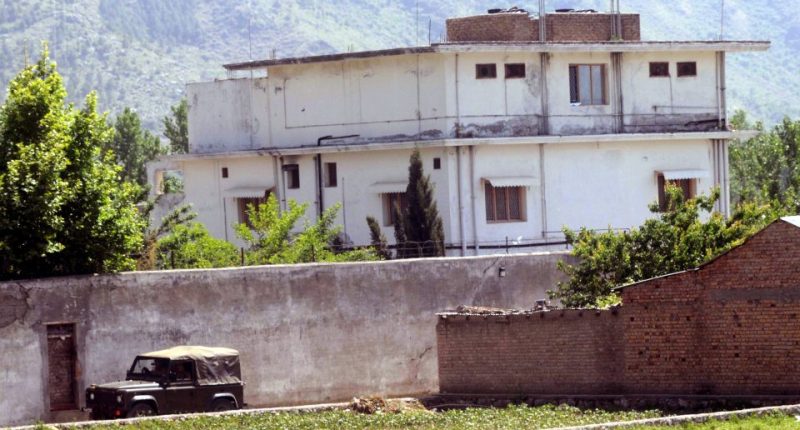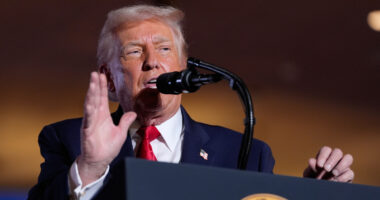Share this @internewscast.com
INDIA has branded Pakistan the “epicentre of global terrorism” as tensions between the two nuclear armed powers continue to spiral.
Today, Indian Foreign Secretary Vikram Misri delivered a pointed comment during a briefing, stating: “I don’t need to remind the audience where bin Laden was located.”
This statement coincides with the ongoing military tension between the neighboring countries, which has captured international focus. Many diplomats are concerned about the potential for nuclear conflict.
Meanwhile, Pakistan asserted that it has eliminated 40 to 50 Indian soldiers along the de facto border in the contested Kashmir area.
India yesterday launched a barrage of missile strikes on nine targets in Pakistan and Pakistan-administered Kashmir.
The escalation follows a horrifying attack in Kashmir last month, when 26 people were killed by gunmen.
India has blamed Pakistan for the massacre, but Islamabad denies any involvement.
New Delhi has long accused Pakistan of supporting terrorist groups operating in Indian-administered Kashmir – with some even calling the country a “save haven” for terrorists.
Misri continued his blistering critique, saying: “Pakistan is also home to a large number of UN proscribed terrorists and also to terrorists proscribed by many countries.”
“Pakistan’s reputation as the epicentre of global terrorism is rooted in a number of instances,” he added.
Osama bin Laden was notoriously found in Pakistan after a years long hunt for the terrorist leader – where he was killed by US forces in May 2011.
Both sides accuse each other of firing drones and missiles into one another’s territory since the Kashmir attack.
But Pakistani Inter-Services Public Relations Director General Ahmed Sharif Chaudhry told local outlet ARY News: “When Pakistan strikes, the Indian media won’t need to spin stories — the whole world will know.”
Pakistan has accused India of deliberately targeting civilians in their strikes, but New Delhi insists it has only hit sites used by militants.
The ongoing fighting has sparked fears around the world that India and Pakistan could be on a path to all out war.
Pakistan’s Prime Minister Shehbaz Sharif held a televised address to the nation yesterday amid claims that around 30 civilians were killed in India’s strikes.
He said: “I promise that we will take revenge for every drop of blood of these victims.”
Islamabad claims it has taken down several Indian drones and five fighter jets.
Meanwhile, India reports that 16 people, including three women and five children, have died since Wednesday morning in Pakistani shelling.
Diplomats and world leaders are urging the two nations to step back from the brink of all out war, with fears a nuclear exchange could kill up to 125 million people.
While the two nations only have relatively small nuclear arsenals compared to countries like Russia and the United States, many observers are deeply concerned about the devastating impact they could still cause.
Colonel Philip Ingram, a former British Army commander, told The Sun:
“Western intelligence in particular will be focused on the readiness and the outloading of nuclear stocks inside both Pakistan and India and monitoring what’s happening to them very closely indeed.
“The worrying thing about these two nations is that the tensions are very real.”
The region of Kashmir has been bitterly disputed by India and Pakistan for decades.
Both countries partially control the Muslim-majority region, and tensions have spilled over into war several times before.






















